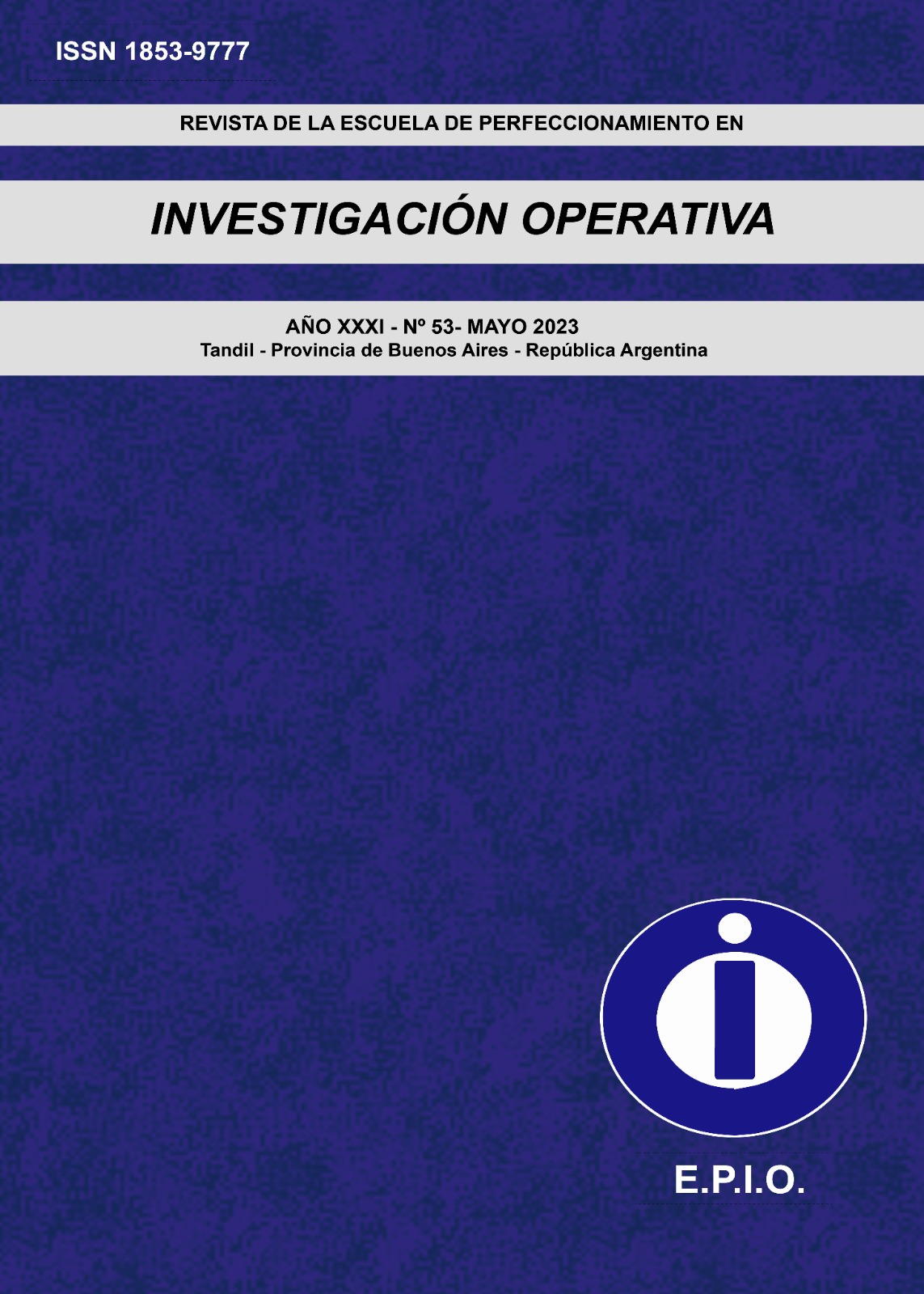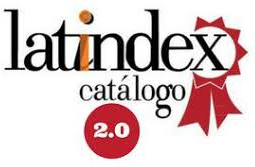Discusión de la teoría económica y su aplicación en modelos multidisciplinarios energéticos
Parte 1: Introducción a los métodos de decisión difusos
Keywords:
multi-objective problem, fuzzy decision theory, externality, economic valuation, intrinsic valueAbstract
This paper deals with introductory aspects of fuzzy decision theory: law of supply and demand, market and its limitations (externalities) with the solutions proposed in theory and practice to solve them (tolls). Within these limitations (still under discussion), the concept of uncertainty is introduced, an aspect that hinders an optimal decision making of the participating individuals based on current economic theories that are based on the full certainty of the economic context. Therefore, decision theory and its extension to fuzzy decision theory, which is applicable in contexts of uncertainty, are introduced. The Analytic Hierarchy Process (AHP) and its link with fuzzy decision models by means of exponential weights are presented. Therefore, the purpose of this article is to define a methodology for optimal evaluation, valuation and regulation, in contexts of fundamental uncertainty, determining the optimal reward or punishment, based on non-monetizable indexes (directly translatable to an equivalent economic cost). From there, an experimental index is defined, which is used in the present line of research, the Intrinsic Cost (IC).
Downloads
References
Amenta, P., Lucadamo, A., & Marcarelli, G. (2021). On the choice of weights for aggregating judgments in non-negotiable AHP group decision making. European Journal of Operational Research, 288(1), 294-301. https://doi.org/10.1016/j.ejor.2020.05.048
Aydin, C., & Esen, Ö. (2018). Reducing CO2 emissions in the EU member states: Do environmental taxes work? Journal of Environmental Planning and Management, 61(13), 2396-2420.
Camargo, F. G. (2021a). Survey and calculation of the energy potential and solar, wind and biomass EROI: application to a case study in Argentina. DYNA, 88(219), 50-58. https://doi.org/10.15446/dyna.v88n219.95569
Camargo, F. G. (2022b). Dynamic Modeling of The Energy Returned on Invested. DYNA, 89(221), 50-59.
Camargo, F. G. (2022c). Fuzzy multi-objective optimization of the energy transition towards renewable energies with a mixed methodology. Production, 32, e20210132. https://doi.org/10.1590/0103-6513.20210132
Camargo, F. G. (2023d). A hybrid novel method to economically evaluate the carbon dioxide emissions in the productive chain of Argentina. Production, 33, e20210132. https://doi.org/10.1590/0103-6513.20220053
Camargo, F. G. (2019e). Metodología regulatoria para propiciar la eficiencia energética desde el lado de la oferta en sistemas de distribución de energía eléctrica, 32, 1-330. Fundación Suyay. Recovered from http://hdl.handle.net/20.500.12272/7010
Camargo, F. G., Casanova Pietroboni, C. A., Pérez, E., & Schweickardt, G. A. (2019). Metodología regulatoria para propiciar la eficiencia energética desde el lado de la oferta con penetración de fuentes primarias de energías renovables. Parte 1: Descripción y alcance del modelo de optimización. Recovered from https://ria.utn.edu.ar/handle/20.500.12272/5349.
Camargo, F. G., & Schweickardt, G. A. (2014). Estimación de la tasa de retorno energético: Análisis comparativo de las metodologías disponibles en la actualidad.https://publicaciones.ucuenca.edu.ec/ojs/index.php/maskana/article/view/575
Camargo, F. G., Schweickardt, G. A., & Casanova, C. A. (2018). Maps of Intrinsic Cost (IC) in reliability problems of medium voltage power distribution systems through a Fuzzy multi-objective model. Dyna, 85(204), 334-343. https://doi.org/10.15446/dyna.v85n204.65836
Cavallaro, F., Danielis, R., Nocera, S., & Rotaris, L. (2018). Should BEVs be subsidized or taxed? A European perspective based on the economic value of CO2 emissions. Transportation Research Part D: Transport and Environment, 64, 70-89. https://doi.org/10.1016/j.trd.2017.07.017
Hao, Y., Tian, C., & Wu, C. (2020). Modelling of carbon price in two real carbon trading markets. Journal of Cleaner Production, 244, 118556. https://doi.org/10.1016/j.jclepro.2019.118556
Ichihashi, S. (2021). The economics of data externalities. Journal of Economic Theory, 196, 105316.
Jeanne, O., & Korinek, A. (2019). Managing credit booms and busts: A Pigouvian taxation approach. Journal of Monetary Economics, 107, 2-17. https://doi.org/10.1016/j.jmoneco.2018.12.005
Liu, Y., Eckert, C. M., & Earl, C. (2020). A review of fuzzy AHP methods for decision-making with subjective judgements. Expert Systems with Applications, 161, 113738. https://doi.org/10.1016/j.eswa.2020.113738
Maamoun, N. (2019). The Kyoto protocol: Empirical evidence of a hidden success. Journal of Environmental Economics and Management, 95, 227-256. https://doi.org/10.1016/j.jeem.2019.04.001
Miyamoto, M., & Takeuchi, K. (2019). Climate agreement and technology diffusion: Impact of the Kyoto Protocol on international patent applications for renewable energy technologies. Energy policy, 129, 1331-1338. https://doi.org/10.1016/j.enpol.2019.02.053
Pradhan, B. K., & Ghosh, J. (2022). A computable general equilibrium (CGE) assessment of technological progress and carbon pricing in India's green energy transition via furthering its renewable capacity. Energy Economics, 106, 105788. https://doi.org/10.1016/j.eneco.2021.105788
Robson, E. N., Wijayaratna, K. P., & Dixit, V. V. (2018). A review of computable general equilibrium models for transport and their applications in appraisal. Transportation Research Part A: Policy and Practice, 116, 31-53. https://doi.org/10.1016/j.tra.2018.06.003
Saaty, T. L. (2003). Decision-making with the AHP: Why is the principal eigenvector necessary. European journal of operational research, 145(1), 85-91. https://doi.org/10.1016/S0377-2217(02)00227-8
Shahzadi, G., Akram, M., & Al-Kenani, A. N. (2020). Decision-making approach under Pythagorean fuzzy Yager weighted operators. Mathematics, 8(1), 70. https://doi.org/10.3390/math8010070
Silajdzic, S., & Mehic, E. (2018). Do environmental taxes pay off? The impact of energy and transport taxes on CO2 emissions in transition economies. South East European Journal of Economics and Business, 13(2), 126-143. https://doi.org/10.2478/jeb-2018-0016
Simshauser, P. (2018). Price discrimination and the modes of failure in deregulated retail electricity markets. Energy Economics, 75, 54-70. https://doi.org/10.1016/j.eneco.2018.08.007
Zadeh, Lotfi A.; FU, King- Zhang; Tanaka, Kokichi (ed.). (2014). Fuzzy sets and their applications to cognitive and decision processes: Proceedings of the us–japan seminar on fuzzy sets and their applications, held at the university of california, berkeley, california, July 1-4, 1974. Academic press.
Zhang, J., & Zhang, Y. (2018). Carbon tax, tourism CO2 emissions and economic welfare. Annals of Tourism Research, 69, 18-30. https://doi.org/10.1016/j.annals.2017.12.009
Downloads
Published
Issue
Section
License

This work is licensed under a Creative Commons Attribution-NonCommercial-ShareAlike 4.0 International License.
Atribución — Usted debe dar crédito de manera adecuada, brindar un enlace a la licencia, e indicar si se han realizado cambios. Puede hacerlo en cualquier forma razonable, pero no de forma tal que sugiera que usted o su uso tienen el apoyo de la licenciante.
NoComercial — Usted no puede hacer uso del material con propósitos comerciales.
CompartirIgual — Si remezcla, transforma o crea a partir del material, debe distribuir su contribución bajo la misma licencia del original.







